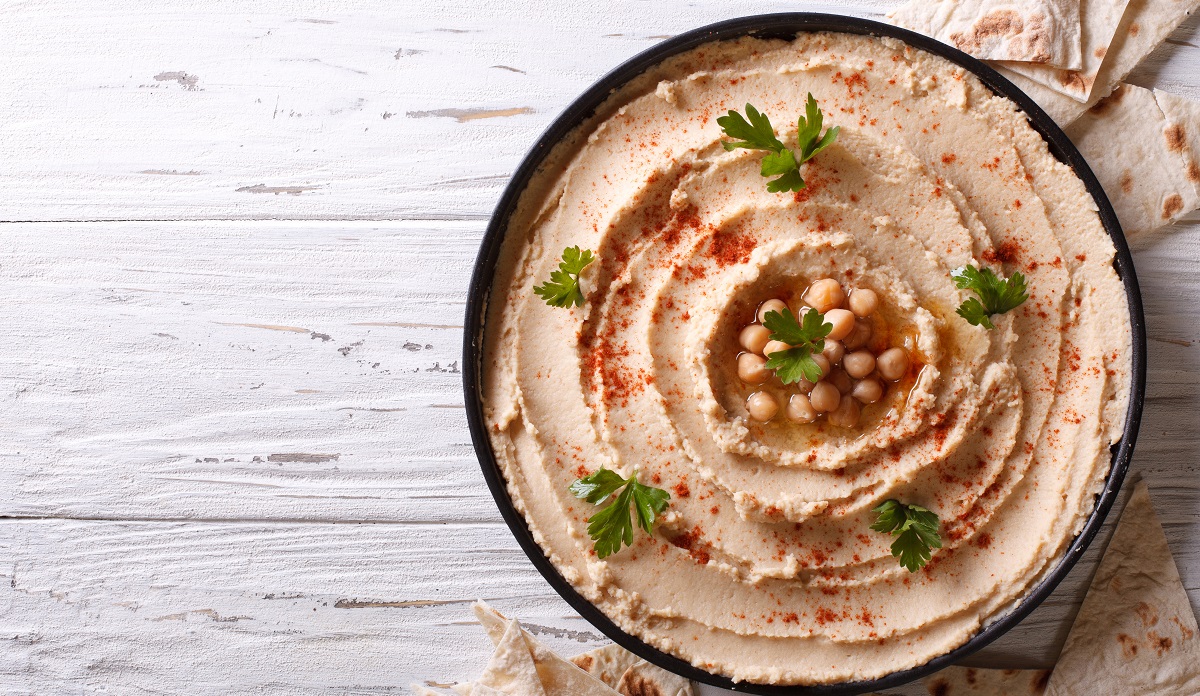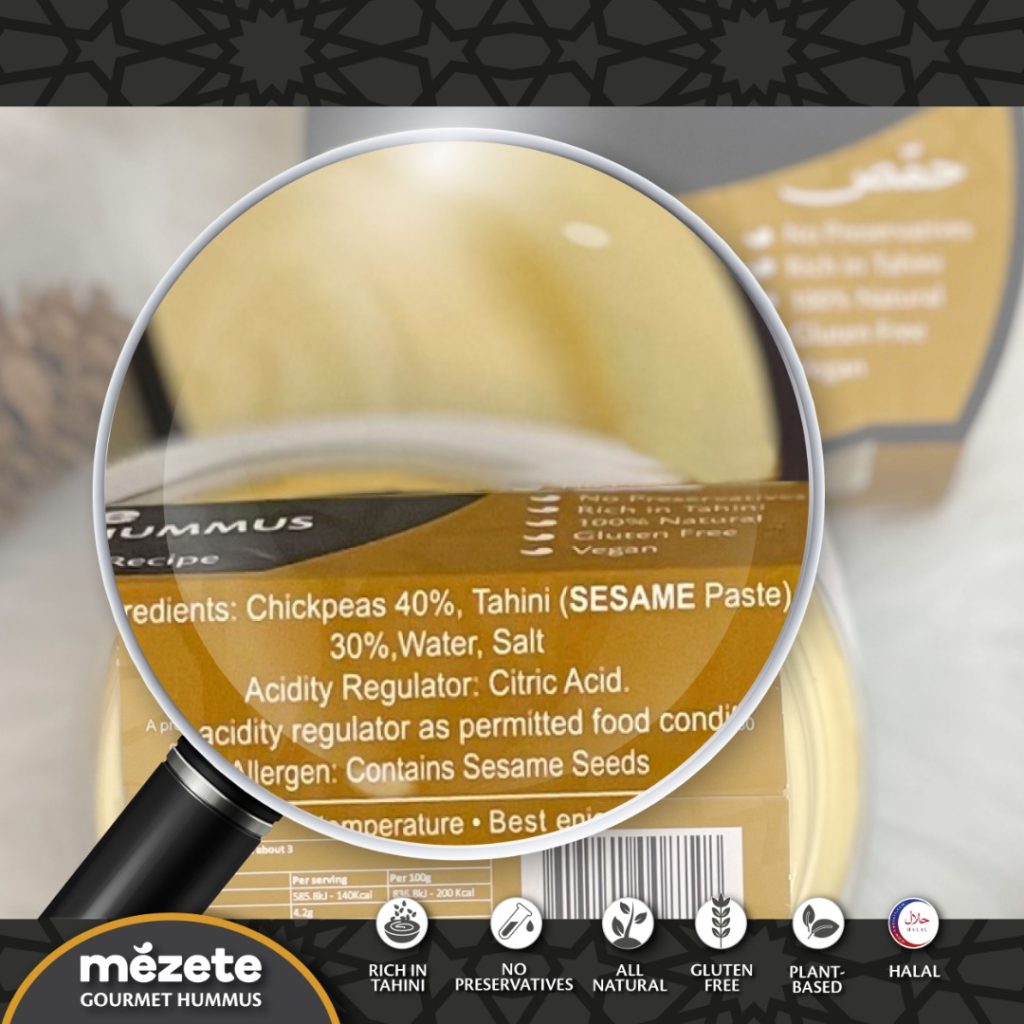What are Some of the Healthiest Snacks You Can Get in Malaysia?
Malaysia is known for its variety of delicious snacks, but not all of them are healthy. From traditional snacks to modern Western-style options, Malaysians can
Hummus is one of the healthiest snacks you can eat, but many Malaysians haven’t discovered its wide variety of health benefits. Its high fibre content means it keeps you full longer, and it even has anti-inflammatory properties that could lower your risk of heart disease and diabetes! It is also a very versatile dip that can be used in many different types of recipes.
So if you’re looking to eat more healthily without boring yourself to death, take a look at some of the health benefits of hummus in Malaysia today!

Hummus is a dip or spread made from cooked, mashed chickpeas, tahini (sesame paste), olive oil, lemon juice, salt, and garlic. It is often served as a dip with pita bread. The word hummus is derived from the Arabic word for chickpeas. It was originally popularised in the Middle East, but now it is eaten worldwide.
Hummus is made from mashed chickpeas, tahini (sesame seed paste), olive oil, garlic, salt, and lemon. These healthy ingredients are blended together to form hummus.
Hummus is usually served with pita bread or tortilla chips for a light appetizer.
You need to be aware that chickpeas are nutritious plant-based proteins, so hummus is a great way for vegetarians and vegans to get some much-needed protein in their diet. It offers up to 7.8 grams of high-quality protein per serving, which has been shown to reduce hunger by 60% over a two-hour period when eaten as an appetiser before a meal and also help with weight loss.
When paired with broccoli, it becomes one of the healthiest vegetables on earth, providing you with nearly three days’ worth of the recommended dietary allowance (RDA) for vitamin C.
Hummus helps reduce inflammation in your body, which is excellent news for people with arthritis. In fact, research has that consuming hummus can reduce inflammation by as much as 24%. This is thought to be due to it being high in polyphenols which are known for their anti-inflammatory properties.
The main polyphenol found in hummus is caffeic acid, which not only reduces inflammation but also prevents heart disease, strokes, diabetes, and certain cancers.
The high fibre content found in hummus naturally regulates sugar in your body by slowing down its absorption. This helps to prevent sudden spikes in your blood sugar levels and can reduce your risk of developing Type 2 diabetes. Diabetes is a huge health issue in Malaysia.
It’s also beneficial for helping you lose weight, as it will keep you full longer, so you eat less during meals. The same goes for if you’re trying to control your blood sugar levels, as it slows the uptake of carbohydrates into your bloodstream and lowers the glycemic index making it suitable as a snack for diabetics.
If you want to try adding more healthy fats to your diet without feeling guilty about indulging in this delicious dip, then look no further than hummus.
The high levels of protein and fibre found in hummus help to promote healthy digestion. This is because it improves regularity and alleviates diarrhoea, constipation, bloating, and flatulence.
If you suffer from inflammatory bowel disease (IBD), then consuming more hummus can help to relieve symptoms and manage flare-ups by restoring healthy gut flora thanks to its nutrient-rich properties.
Eating hummus may also help protect against colon cancer, as well as being a natural antibiotic against many types of bacteria that cause stomach upsets and diarrhoea.
The high levels of calcium found in hummus, which contains as much as 10% of your RDA per serving, make it one of your best sources for bone health.
If you don’t currently get enough calcium in your diet or if you’re lactose intolerant, then try adding more hummus to your diet to help prevent osteoporosis and increase bone density. This can also be beneficial for children that are still growing and need plenty of calcium to develop their bones.
As well as being high in fibre and calcium, hummus is also an excellent source of vitamin E, which is one of your body’s main antioxidants. This nutrient helps protect against free radical damage and harmful effects caused by UV rays. It also promotes healthy skin, hair, blood vessels, and cells. It’s a powerful antioxidant that can even help to reverse the signs of ageing and wrinkles.

The chickpeas that are found in hummus may help to lower your risk for heart disease. This is because they contain monounsaturated fats that may help reduce bad cholesterol and lower your blood pressure, reducing your risk of developing coronary heart disease (CHD) and stroke.
Chickpeas have been associated with improved insulin sensitivity and glucose metabolism, lowering your risk of both Type 2 diabetes and cardiovascular disease.
Hummus also promotes weight loss, as it keeps you fuller for longer and can help you maintain your weight. This is because it has a low glycoindex, which means it doesn’t cause any sudden spikes in your blood sugar levels and can help you regulate your appetite. The high protein and fibre content found in hummus also helps to speed up your metabolism, reducing belly fat and boosting muscle mass.
With all these fantastic benefits, it’s easy to see why you should be making hummus a regular addition to your diet. Since it comes in so many different flavours and textures, you can choose your favourite flavour or create something new each time you make some.
It is still important that you make sure you’re getting good quality hummus in Malaysia. At mezete, we ensure that chickpeas and tahini are always the main ingredients, not artificial ingredients. Always check the label before choosing a new brand of hummus.

So, fellow Malaysians, have you tried adding more healthy hummus to your diet? Why or why not? Share with us in the comments below.
Malaysia is known for its variety of delicious snacks, but not all of them are healthy. From traditional snacks to modern Western-style options, Malaysians can
Noodles are a big part of different Asian cuisines. Malaysian cuisine has a lot of noodle dishes you can easily find in restaurants and hawker
In Malaysia, coffee culture is booming, with people flocking to coffee shops to indulge in their favorite brews. From artisanal coffee made by someone with
Oats have been gaining popularity in Malaysia due to their numerous health benefits. These wholesome grains offer a range of advantages, including lower blood pressure
Tel: +603-5569 2318
Fax: +603-5569 2208
Email: hello@sanglafoods.com
Lot 4, Jalan Peguam U1/25A, Hicom Glenmarie Industrial Park,
40150 Shah Alam, Selangor, Malaysia